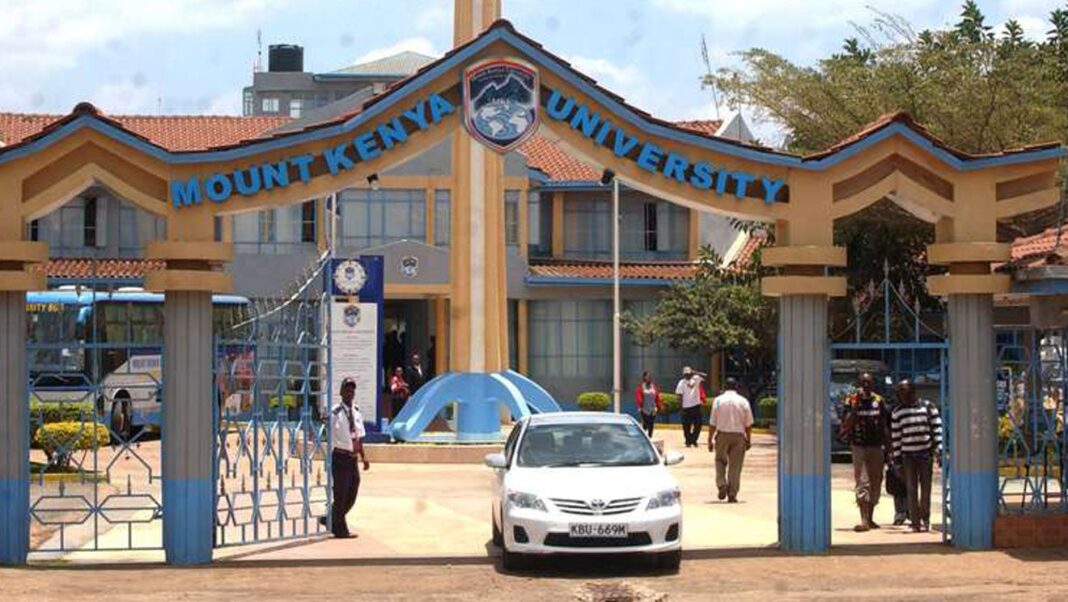Kenyan authorities deported a Russian embassy employee on Friday after arresting him in connection with an alleged human trafficking operation that lured Kenyans to Russia with false promises of employment, only to force them into military service in the ongoing war in Ukraine.
Mike Lyapin, who had worked at the Russian Embassy in Nairobi since 2017, was escorted onto an Air Arabia flight at Jomo Kenyatta International Airport at 1 p.m., bound for Moscow via Sharjah, United Arab Emirates.
His deportation came less than 24 hours after his arrest Thursday evening, when authorities said he attempted to evade capture.
The case has exposed what Kenyan investigators describe as a sophisticated trafficking network that preyed on young Kenyans desperate for work abroad.
The scheme promised lucrative employment opportunities in Russia but allegedly delivered victims directly into the ranks of the Russian military fighting in Ukraine.
Lyapin’s arrest followed a dramatic rescue operation in which Kenyan detectives freed 21 people from apartments in Athi River, a town southeast of Nairobi, where they were being processed for travel to Russia.
Police said the victims had been unknowingly prepared for forced conscription into the Russian army.

During the raid, officers seized evidence including checkbooks, travel documents, job offer letters and contracts that linked two Kenyan companies, Global Face Human Resource Ltd and Ecopillars Manpower Ltd, to the suspected trafficking operation.
Investigators said the firms had signed a one-year agreement to “recruit, screen and deploy Kenyans to Russia.”
The victims told police they had been coerced into signing contracts requiring them to pay between 1.65 million and 2.3 million Kenyan shillings (approximately $12,000 to $17,000) for visas, flights and logistics.
The contracts included harsh penalty clauses of 1 percent daily interest for late payments. Some victims had already paid deposits ranging from 50,000 to 100,000 shillings after being promised monthly salaries of 200,000 shillings.
In a parallel operation, authorities arrested Edward Kamau Gituku, whom they accused of coordinating the victims’ travel arrangements. Gituku was arraigned in court Friday, and investigators were granted 10 days to detain him while the investigation continues.
The arrests come amid growing international concern about the recruitment of foreign nationals to fight in the Russia-Ukraine conflict. Last week, a video went viral showing Evans Kibet, a 36-year-old Kenyan athlete, speaking from captivity in Ukraine.
Kibet claimed he had been deceived into traveling to Russia for athletic opportunities but was instead forced to join the Russian military. Ukrainian forces confirmed his capture in Kharkiv Oblast.
Kenyan authorities said the trafficking network appears to be well-organized and supported by powerful individuals, though they declined to provide specifics about ongoing investigations.
Officials warned that the scheme had systematically targeted vulnerable young Kenyans seeking employment opportunities abroad.
The case highlights the broader issue of human trafficking for military purposes, a practice that has drawn condemnation from international human rights organizations.
Kenya, like many developing nations, has seen an increase in its citizens seeking work overseas, making them potential targets for such schemes.
Kenyan security agencies have issued warnings to citizens about accepting employment offers in Russia, cautioning that such opportunities may result in forced military service in the Ukraine conflict.
The investigation continues as authorities work to dismantle what they describe as an extensive criminal network.
The deportation of Lyapin marks a significant diplomatic incident between Kenya and Russia, though neither government has issued official statements about the case.
The Russian Embassy in Nairobi could not immediately be reached for comment.


